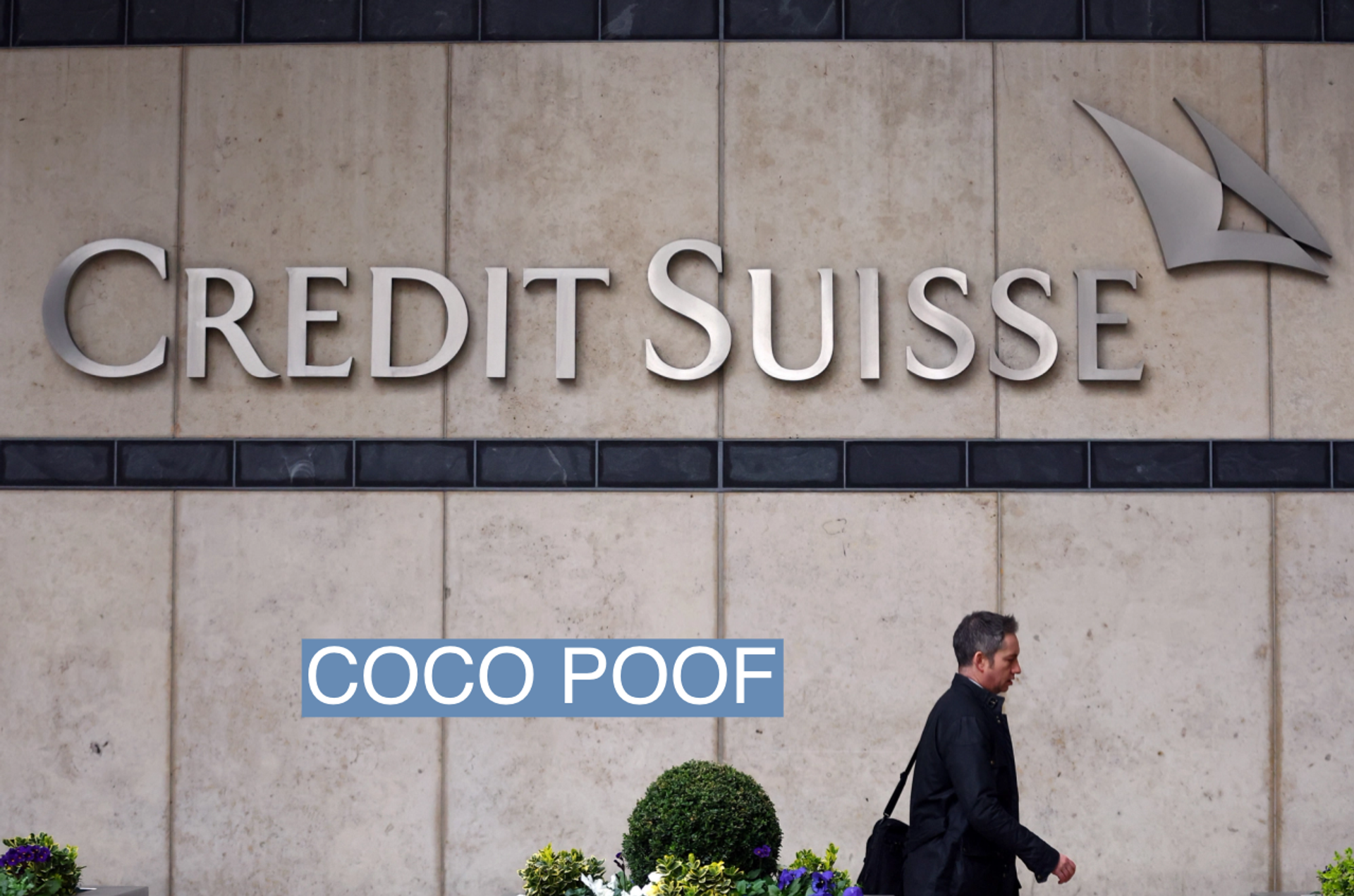The Scoop
For years, senior Credit Suisse employees were paid partly in a special bond that is now worth nothing, zeroed out as part of the bank’s fire sale to UBS, people familiar with the matter said.
Known as “contingent convertibles,” they function as regular bonds that receive interest — unless the bank’s capital falls below a certain level. Then they can be “bailed in” and their value wiped out to cover the hit.
That’s what happened over the weekend, when Credit Suisse, facing unraveling confidence and investor outflows, was sold for $3 billion to its bigger rival, UBS, in a deal that zeroes out the value of the 16 billion Swiss francs ($17 billion) worth of CoCo bonds the bank had issued in recent years.
Step Back
After the 2008 financial crisis, regulators pushed banks to better align pay with risk-taking. Big cash bonuses, the thinking went, encouraged traders and other executives to take all-or-nothing swings without any regard for the long-term consequences. Stock options, another perk with lopsided incentives, were phased out, replaced by plain vanilla shares that were subject to stiffer clawback policies.
Credit Suisse’s policy took that a step further, paying many senior executives in an instrument explicitly designed to shoulder any disastrous consequences of their decisions.
A spokeswoman for the bank declined to comment.
Liz’s view
On one hand, paying employees in a special piece of paper that puts them on the hook for catastrophic failure is the platonic ideal of compensation/risk management linkage.
On the other hand, it didn’t work! Much has been made in recent years of forcing bank executives to eat their own cooking. But Lehman Brothers employees owned about a third of the firm when it failed in 2008, and CEO Dick Fuld held onto 10 million shares until the end, losing about $1 billion. The era of traders taking home huge bags of cash and leaving a mess behind them is mostly over, and yet here we are in the middle of a mess.
Credit Suisse’s employees knew they would bear at least part of the cost of the firm’s failure and it failed anyway after years of excessive risk-taking. That should be a cautionary tale for the pay czars across Wall Street.
Know More
Paying employees in stock encourages a shoot-for-the-moon approach, especially if it isn’t tempered by long-term vesting schedules and clawback periods. But a bond is only ever going to be worth, at most, the face value plus the interest, capping the upside for Credit Suisse’s executives and giving them less incentive to swing for the fences on a given trade or strategy.
The problem is that this particular bond can be, and now is, worth less than stock. Credit Suisse stockholders are getting 0.76 Swiss francs, or about 82 cents, for each share of stock they own. The employees and other holders of the CoCo bonds (officially known as AT1 bonds for the additional Tier 1 — high quality — capital they provide) are getting nothing.
Now What?
Expect a legal fight here. The fine print of the CoCo bonds does allow them to be sent to the back in the bag-holding line, behind stockholders, but required Swiss regulators to make a legal determination that Credit Suisse would otherwise have been insolvent, which they did on Sunday.
It was a quick reversal from just a few days before, when they had believed that opening a financial lifeline might save the bank. That’s the kind of decision that gets second-guessed, as seen in the long-running court fight in the U.S. over the government’s decision to take over Fannie Mae and Freddie Mac, sweeping their profits away from private investors.
Notable
- “Strengthening accountability is an important deterrent to prevent mismanagement,” President Joe Biden said yesterday when he asked Congress for broader powers to claw back pay from executives of failed banks.
